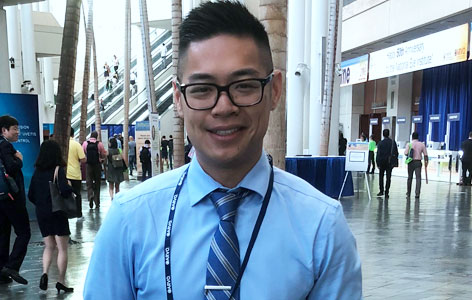
Conference: 2018 Association for Research in Vision and Ophthalmology (ARVO) Annual Meeting, Honolulu, Hawaii, USA, April 28–May 03, 2018.
Conference Highlight: This year’s theme “Stand strong for science: Stand for strong vision science” implores vision scientists to stay resilient despite major uncertainties in financial support for science.
Conference Summary: A major topic at this year’s annual meeting was the emerging use of CRISPR-Cas9 gene editing technology in vision research. Dr. Jennifer Doudna, professor at UC Berkeley and a pioneer of the CRISPR-Cas9, delivered this year’s Alcon keynote address. Dr. Doudna’s presentation highlighted how bacterial CRISPR adaptive immune systems are able to create powerful genome engineering tools to enable advances in both fundamental biology and medicine. She also highlighted the ethical challenges that should be considered in using such a powerful tool. Significant findings involving CRISPR-Cas9 at the annual meeting include its use in correcting disease mutation and phenotype to treat retinal degeneration, in gene therapy to mediate cellular reprogramming in rod photoreceptors, and for in vitro aptamer delivery to treat retinitis pigmentosa. Furthermore, special interest groups were organized to discuss the potential of using CRISPR-Cas9 to eliminate genes that cause glaucoma and retinal degeneration, the leading causes of irreversible blindness worldwide (for which there are currently no cures).
In addition to gene editing, the topic of adapting smartphones for use as analytical devices in the clinic was another theme at this year’s annual meeting. Smartphones are being used to help diagnose dry eye diseases through the analysis of the tear film lipid layer and break-up time, to take fundus photos in children for diagnosis of retinal diseases, to measure corneal thickness and corneal endothelium of keratoconic patients, and to measure the anterior chamber depth for pre-op assessment.




